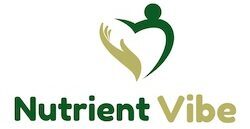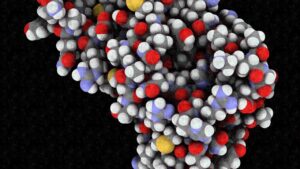Over the years, there has been some confusion surrounding the use of prenatal vitamins for individuals who are not pregnant. As an enthusiastic nutrition blogger, it is imperative to debunk misconceptions and provide clear guidance on this topic. Prenatal supplements are specifically formulated to support the increased nutritional needs during pregnancy, emphasizing the importance of obtaining imperative vitamins and minerals for the health of both mother and baby. It is crucial to navigate this realm of prenatal supplements to understand whether taking them without being pregnant is safe or advisable. Can you take pre
Understanding Prenatal Supplements
What Are Prenatal Vitamins?
While prenatal supplements are designed specifically for pregnancy, there may be some confusion about whether they can be taken when not expecting. Prenatal vitamins are formulated to provide extra vitamins and minerals that are crucial for the healthy development of a baby during pregnancy. They typically contain key nutrients such as folic acid and iron, which play a vital role in preventing birth defects and promoting red blood cell production.
The Difference Between Regular and Prenatal Vitamins
Any discussion about taking prenatal vitamins when not pregnant should address the difference between regular multivitamins and prenatal supplements. For women who are not expecting, a regular multivitamin might suffice to meet their daily nutrient needs. However, prenatal vitamins are specifically tailored to cater to the increased demands of a developing fetus, containing higher levels of certain vitamins like folic acid and iron.
Vitamins and minerals are important for the overall well-being of an individual, so it is important to understand the specific needs that arise during pregnancy. While a balanced diet is the cornerstone of good health for most adults, prenatal supplements are recommended for pregnant women to ensure they are getting adequate amounts of key nutrients for both their own health and the development of their baby.
The Role of Key Nutrients in Prenatal Vitamins
Folic Acid: Its Significance Before and During Pregnancy
If you’re considering taking prenatal vitamins even if you’re not pregnant, one key nutrient to focus on is folic acid. Folic acid is necessary for women of childbearing age, as it plays a crucial role in preventing birth defects, particularly during the early stages of pregnancy. It is recommended that women consume 400 micrograms of folic acid daily, both before and during pregnancy.
Iron: Why It’s Essential for Pregnant Women
Before begining on the journey of pregnancy, it’s important to ensure you have adequate levels of iron in your body. Iron is vital for the production of red blood cells, which transport oxygen to your cells and tissues. Pregnant women require more iron to support the increased blood volume and to provide oxygen to the growing fetus. Iron deficiency during pregnancy can lead to complications such as anemia and low birth weight in babies.
To meet your iron needs naturally, you can include iron-rich foods in your diet such as lean meats, poultry, seafood, beans, and fortified cereals. However, if you struggle to get enough iron from your diet alone, prenatal vitamins can be a helpful supplement to ensure you are meeting your daily requirements.

Can You Take Prenatal Vitamins Without Being Pregnant
Now, you may be wondering if it’s safe to take prenatal vitamins when you’re not expecting. Some individuals consider taking prenatal supplements outside of pregnancy for various reasons.
Reasons People Consider Prenatal Vitamins Outside of Pregnancy
Reasons for taking prenatal vitamins when not pregnant can vary. Some believe these supplements help with hair growth and nail strength, while others think they provide additional nutrients for overall well-being. However, it’s important to understand that prenatal vitamins are specifically formulated to support the increased nutritional needs during pregnancy.
Potential Benefits and Misunderstandings
To investigate into the potential benefits and misunderstandings surrounding prenatal vitamins when not pregnant, it’s crucial to acknowledge that these supplements are designed to provide extra vitamins and minerals needed for a developing fetus. While some individuals believe that prenatal vitamins can enhance hair growth and nail strength, these claims are not scientifically proven. It’s vital to consult with a healthcare provider before starting any supplement regimen.
It’s crucial to understand that the key nutrients found in prenatal vitamins, such as folic acid and iron, play a vital role in pregnancy-related health. While folic acid aids in preventing birth defects, iron supports red blood cell production. However, exceeding the recommended daily intake of these nutrients can lead to potential risks and adverse effects.
How Prenatal Vitamins Affect Your Body When Not Pregnant
The Truth About Prenatal Vitamins and Hair Growth
Being pregnant is not a requirement to consider taking prenatal vitamins. Many believe that these supplements can lead to thicker, healthier hair and stronger nails, but the reality is quite different. While prenatal vitamins contain important nutrients like biotin and folic acid that can support hair health, they are not a magic solution for hair growth. In fact, for most individuals not expecting a baby, a well-balanced diet rich in these nutrients is usually sufficient to maintain hair and nail health without the need for prenatal supplements.
Exploring Side Effects: Stronger Nails and Beyond
Growth While prenatal vitamins may not necessarily boost hair growth or strengthen nails for those who are not pregnant, taking them without a medical need can have consequences. Excessive intake of certain nutrients, such as biotin or iron, found in prenatal supplements can lead to unwanted side effects. These can range from mild issues like digestive discomfort to more serious concerns such as masking underlying deficiencies or causing long-term health problems. It’s important to understand the implications of taking prenatal vitamins when not pregnant and to consult with a healthcare provider before considering them as a part of your daily routine.
Exploring the potential risks and benefits of prenatal vitamins when not pregnant is crucial in making informed decisions about your overall health and well-being.
The Risks of Non-Prescription Prenatal Vitamin Use
What Happens If You Take Prenatal Vitamins When Not Pregnant
After all, prenatal vitamins are specifically formulated to support the increased nutritional needs of pregnant women. So, what happens if you take prenatal vitamins when you are not pregnant? While some may think that it’s just like taking a regular multivitamin, the truth is that excessive intake of certain nutrients can actually be harmful to your health.
The Dangers of Excessive Intake of Certain Nutrients
For some individuals, the allure of thicker hair and stronger nails from prenatal supplements may seem enticing. However, it’s vital to understand that more nutrients are not always better. Exceeding the recommended daily intake of certain nutrients, such as folic acid and iron, can lead to adverse effects on your body.
To explore deeper into the dangers of excessive intake of certain nutrients, it’s important to note that excessive folic acid intake can mask a vitamin B12 deficiency, which is crucial for nerve function and red blood cell production. On the other hand, consuming too much iron from prenatal vitamins can result in stomach issues and may even lead to a deficiency in other vital minerals like zinc. These risks highlight the importance of only taking prenatal supplements under the guidance of a healthcare provider during pregnancy.
Natural Ways to Obtain Essential Pre-Pregnancy Nutrients
Once again, it’s necessary to highlight that prenatal vitamins are specifically formulated for pregnant women. However, for women planning for pregnancy or simply looking to boost their nutrient intake naturally, there are alternative ways to obtain necessary pre-pregnancy nutrients.
How to Get Enough Folic Acid Before Pregnancy Without Supplements
Essential for women of childbearing age, folic acid plays a crucial role in preventing birth defects. While prenatal supplements are commonly used to ensure an adequate intake, you can also obtain folic acid naturally through your diet. Foods rich in folic acid include leafy greens like spinach, citrus fruits, and fortified cereals. By incorporating these foods into your daily meals, you can help meet your folic acid requirements without solely relying on supplements.
Best Natural Sources of Iron for Women
Anemia is a common concern among women, especially during pregnancy. Iron-rich foods are key to maintaining healthy red blood cell production. Sources of iron include lean meats, legumes, nuts, and seeds. It’s necessary to include a variety of these foods in your diet to ensure you’re getting enough iron. Pairing iron-rich foods with sources of vitamin C can also help with absorption. For example, try incorporating bell peppers or oranges into your meals to maximize iron uptake.
Preparing for Pregnancy: The Best Vitamins for Preconception Naturally
Making Informed Choices About Supplements
Your journey towards pregnancy begins even before conception. While prenatal supplements are crucial during pregnancy, it’s crucial to understand that they are specifically designed for pregnant women, not for everyday use. Unproven benefits like thicker hair and stronger nails associated with these supplements may mislead individuals. Bear in mind, more nutrients are not always better. Excessive intake of prenatal supplements can lead to risks such as masking B12 deficiency with folic acid and stomach issues with iron. It’s important to consult with a healthcare provider before taking any supplements.
Crafting a Nutrient-Rich Diet to Prepare Your Body for Pregnancy
The foundation of preparing your body for pregnancy lies in crafting a nutrient-rich diet packed with crucial vitamins and minerals. Folic acid and iron are key nutrients crucial for women planning to conceive. While prenatal supplements do offer these benefits, incorporating natural sources of folic acid like spinach and fortified foods such as breakfast cereals into your diet can also provide the necessary nutrients. When consumed through food sources, you minimize the risks associated with excessive supplement intake and ensure a balanced intake of crucial nutrients for preconception health.
Understanding the importance of folic acid and iron before pregnancy is the first step towards ensuring a healthy start to your journey as you prepare for conception. These nutrients play a pivotal role in supporting the healthy growth and development of your baby, even before you realize you are pregnant. By focusing on a nutrient-rich diet and making informed choices about supplements, you set the stage for a healthy and successful pregnancy.
Final Words
With this in mind, it is clear that prenatal supplements are specifically designed for pregnancy and should not be taken daily by those who are not expecting. While there may be misconceptions about the benefits of prenatal vitamins for things like hair growth and stronger nails, it is vital to understand that more nutrients are not always better.
For those looking to boost their folic acid and iron intake before pregnancy, incorporating a nutritious, balanced diet with natural sources like spinach and fortified foods like breakfast cereal can be beneficial. Keep in mind, a healthy diet is usually sufficient for most adults, and prenatal supplements should be reserved for pregnancy when their specific nutrients are crucial for the health of both the mother and baby.






